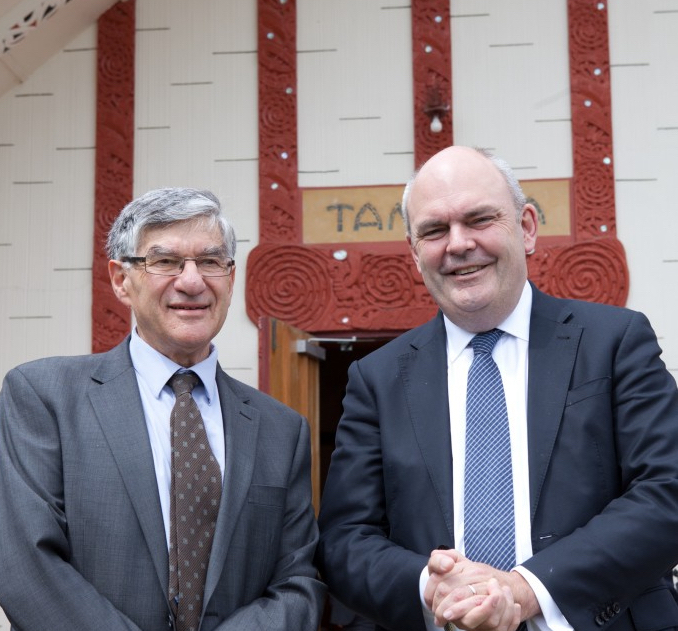New partnership to improve health of New Zealanders
21 June 2016
A new partnership comprising the Healthier Lives National Science Challenge, the Ministry of Health and the Health Research Council of New Zealand (HRC) has been formed to invest in research that will improve understanding, treatment and prevention of long term conditions.
A total funding pool of approximately $7.9 million (exclusive of GST) is available for allocation. The funding partners invite applications for funding of up to $2.5 million (fully-costed, exclusive of GST) and duration of approximately three years.
Healthier lives for all New Zealanders
Healthier Lives has a mandate to reduce the burden of four long-term conditions–cancer, cardiovascular disease, diabetes and obesity–and also to improve equity in healthcare. Director, Professor Jim Mann, is excited about the opportunities the new partnership offers for pursuing the Challenge’s vision of ‘healthier lives for all New Zealanders’.
“The Challenge and the Ministry of Health have both adopted the WHO target of reducing the burden of NCDs (non-communicable diseases) by 25% by 2025 and therefore have common interests. This partnership provides an opportunity to undertake more ambitious research than might otherwise have been the case, especially in the area of diabetes prevention, as well as to extend our involvement in other activities aimed at achieving our shared goals.”
Prevention of diabetes high priority
Science and Innovation Minister Steven Joyce, launched Healthier Lives at the Ōtākou Marae in December last year, applauding its ambition to place New Zealand as a world leader in the delivery of equitable healthcare for NCDs. The Challenge has already funded research in four of the five areas where it has identified opportunities to undertake cutting-edge research aimed specifically at New Zealand’s health needs.
The fifth area, slowing the progression of prediabetes to diabetes, remains a high priority for funding and will be addressed through the new partnership.
Endocrinologist and diabetes specialist, Associate Professor Jeremy Krebs of University of Otago, Wellington, a member of the Healthier Lives science leadership team, welcomes this opportunity to focus on a disease that has reached epidemic proportions.
“Two in three New Zealanders are overweight or obese and eight percent of our population has type 2 diabetes. For Maori and Pacific Peoples the figures are even starker. We urgently need innovative interventions for the prevention of diabetes in high risk populations in New Zealand. As part of this we need a much better understanding of the costs and effectiveness of different types of interventions.”
His fellow endocrinologist, diabetes specialist and colleague on the Healthier Lives science leadership team, Dr Rinki Murphy of University of Auckland, endorses this.
“There is tremendous inequality in the uptake of screening to prevent diabetes and other long term conditions such as cardiovascular disease and cancer. Patients suffering from multiple long term conditions face particular problems in receiving the right preventions and treatments. We need research that will provide evidence for better delivery of diagnostic and therapeutic care in the New Zealand health system.”
Funding application information
Further details on the scope, timeframes and funding available for this initiative is included in the Request for Proposals (RFP). All research funded under the Long-Term Conditions Partnership will be fully contestable. The RFP and all associated documentation has been released on the HRC website and on the Government Electronic Tenders Service (GETS).
Request for proposals information (HRC website)
More about Healthier Lives current research
Healthier Lives research projects funded to date:
- Working with Maori and Pasifika communities to develop and test the effects of a lifestyle-focused personalised support programme delivered by mobile phone on risk factors. Principal Investigators: Professor Cliona Ni Mhurchu (University of Auckland), Dr Ridvan Firestone (Massey University), Dr Lisa Te Morenga (University of Otago)
A Māori and Pasifika mHealth approach
- Establishing a new type of genomic blood test that detects tumour-derived DNA in the blood, to help identify the right treatment for patients with bowel cancer and malignant melanoma, two of New Zealand’s most serious cancers. Principal Investigators: Professor Parry Guilford (University of Otago), Professor Cristin Print (University of Auckland), Dr Chris Jackson (University of Otago)
Biomarkers for cancer detection
- Analysing ‘big data’ to identify the reasons underlying greater heart disease and diabetes risk in Māori, Pacific and Indian subcontinent peoples, in order to develop strategies for improved clinical management and reduced inequities. Principal Investigators: Professor Vicky Cameron (University of Otago, Christchurch), Professor Rod Jackson (University of Auckland)
Predicting cardiovascular disease and diabetes
- Exploring the role of culture, community engagement, and cross-sectoral partnerships in improving the effectiveness of interventions and health outcomes in diabetes for Māori. Principal Investigators: Maui Hudson (University of Waikato), Terry Ehau (Te Roopu Mate Huka), Dr Nina Scott (University of Auckland/Waikato DHB)
He Pikinga Waiora
- Contributing to the Virtual Health Information Network that will use New Zealand’s health datasets and bring together researchers to answer a range of questions, such as, “What impact did the Christchurch earthquake have on cardiovascular hospitalisations?” and “What is the impact on future income earnings of a cardiovascular disease event?” Principal Investigator: Professor Tony Blakely (University of Otago, Wellington)
Capitalising on health data
For more information, please contact:
Professor Jim Mann
Director, Healthier Lives
Fiona Kenning
Project Manager, Research Partnerships, Health Research Council of NZ
09 303 5208


